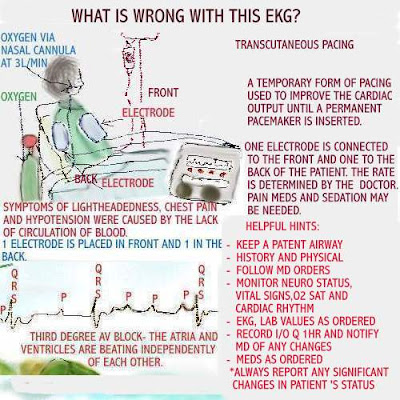FOR MORE HELPFUL INFORMATION ON THIS TOPIC, CLICK ON
THE LINK:
EKG SERIES -WHAT IS WRONG WITH THIS EKG.

TYPE 2 ( MOBITZ 2). TYPE 1 may be the result of
a myocardial infarction ( heart attack)involving the inferior wall of the heart. Depending on the degree of damage, it may be transient and only require observation.
TCP ( Transcutaneous Pacing )may be ordered by the doctor. It is often used as a bridge until a permanent pacemaker is inserted. Patients may need
analgesia and sedation during this period. The doctor will order whatever is necessary to keep the patient comfortable.
Assessment and documentation of the
neurological , respiratory and cardiac status is essential.
You may also enjoy watching the Clinical Videos called
SESSIONS, in particular
watch Sessions 16 through 18





 Updated 4/24
Updated 4/24
 Updated 5/24
Updated 5/24









